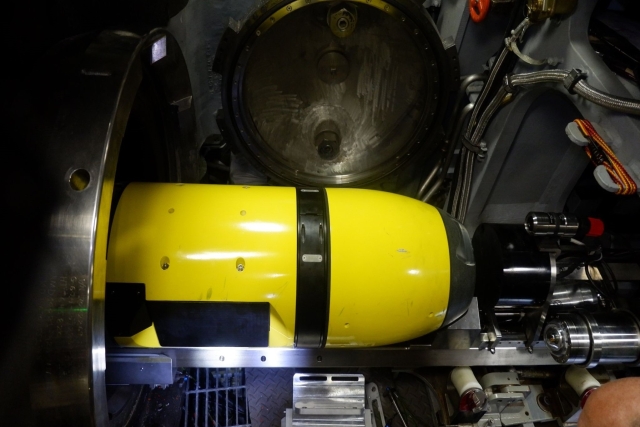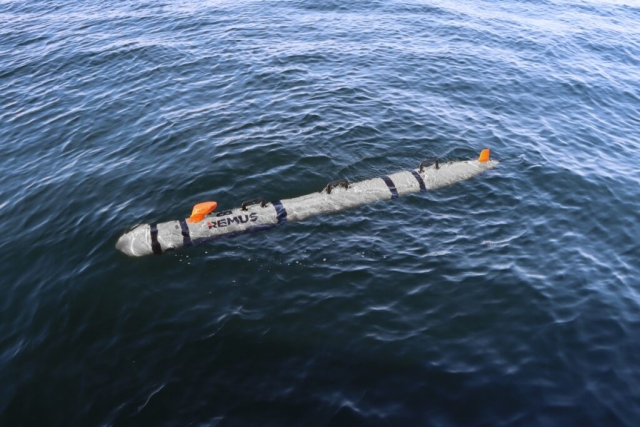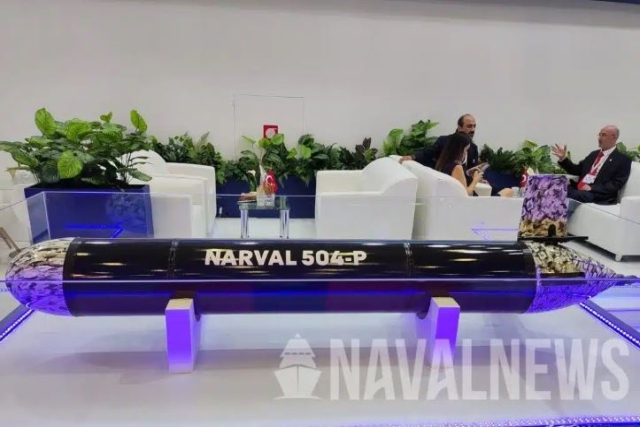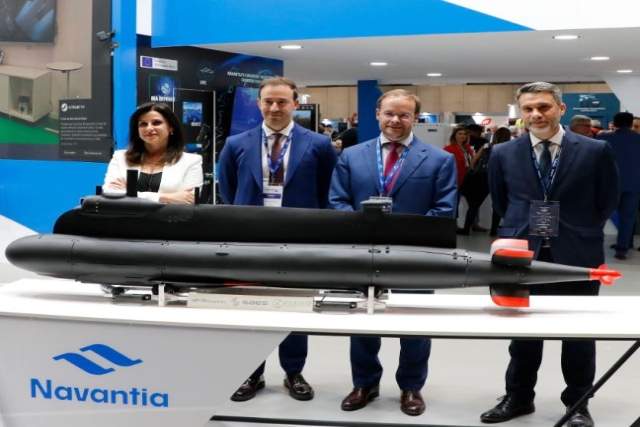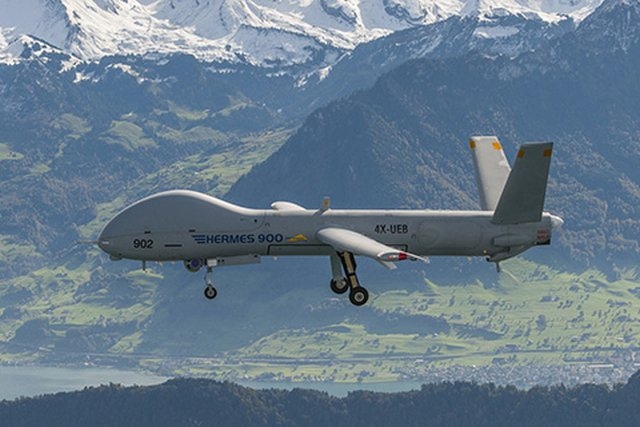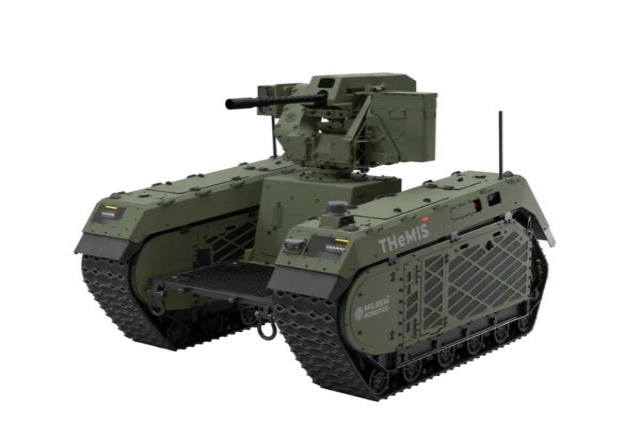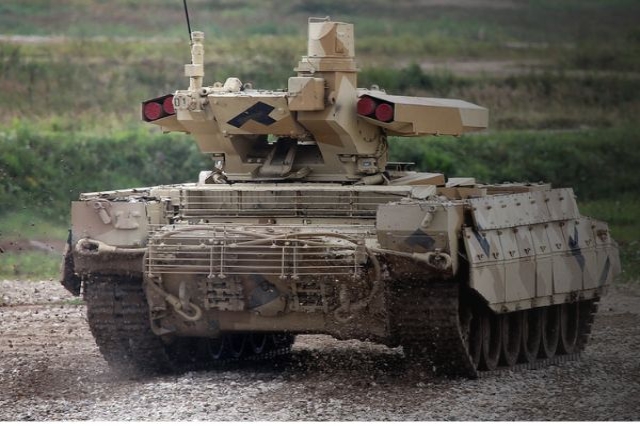France’s DGA Asks Naval Group to Develop Unmanned Combat Underwater Vehicle
Naval Group's XL UUV Demonstrator, qualified at the end of summer 2023, will play a central role in the UCUV project.
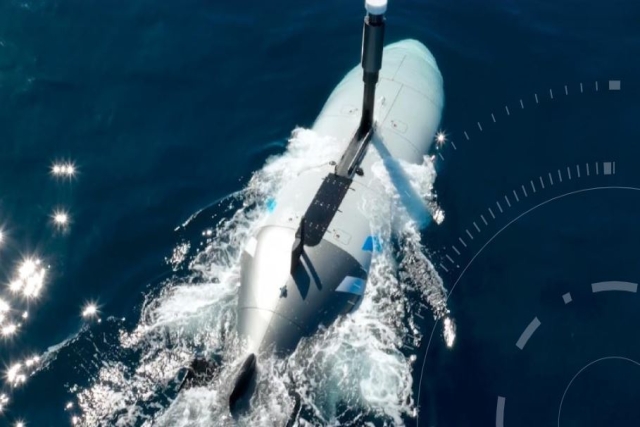
The French Directorate General of Armaments (DGA) has granted Naval Group a framework agreement for the development of an Unmanned Combat Underwater Vehicle (UCUV) demonstrator.
This agreement encompasses the design, production, and testing of the UCUV, with an additional contract signed for the Autonomous Decision-Making Process (ADMP) and secure autonomous navigation.
This progression comes after a prior contract on May 4, 2023, which focused on studying the primary use cases and system architecture of a UCUV. The main objective is to assess technologies aligning with the French Navy's requirements and advance the UCUV demonstrator.
The initial follow-on contract, spanning 24 months, aims to enhance the ADMP to bolster mission planning, monitoring, and secure navigation for an autonomous, enduring, multi-mission system. Naval Group plans further contracts to address challenges related to long endurance, underwater detection, and sub-order implementation.
This initiative places France among a select group of countries developing an Extra-Large Unmanned Underwater Vehicle (XL-UUV) through the UCUV project. Unmanned systems are increasingly crucial in naval combat, providing technological and tactical advantages. The UCUV project seeks to evaluate a new naval capability, potentially offering a medium-term operational response to emerging conflict areas and asymmetric combat.
Naval Group's XL UUV Demonstrator, qualified at the end of summer 2023, is central to the UCUV project. It facilitates the short-cycle evaluation of technologies like ADMP and energy, confirming technical choices for the UCUV demonstrator's design within the defined budget and schedule.
ADMP, Naval Group's on-board brain for autonomous systems, aims to extend unmanned systems' capabilities during long-term missions. Operating without remote control, ADMP allows autonomous systems to adapt to tactical hazards and their operating environment, accomplishing missions independently or collaboratively.
This collaboration builds upon existing R&D efforts culminating in the development of an initial XL-UUV demonstrator, successfully tested at sea by the end of summer 2023. The prototype serves as an experimental laboratory for the DGA's various development initiatives, focusing on enhancing the drone's decision-making autonomy and safe navigation capabilities.
The DGA has set an ambitious goal to launch and operationally evaluate a large, long-endurance demonstrator exceeding 10 meters in length and weighing over 10 tons. The framework agreement aligns with the French Ministry of the Armed Forces' dedicated efforts in naval drone technology, in accordance with the Military Programming Law 2024-2030.
In the U.S., the Navy focuses on deploying Extra-Large Unmanned Underwater Vehicles (XLUUVs) such as Boeing's Orca, an autonomous diesel-electric submarine for independent long-distance operations. However, the program faces challenges with budget overruns and scheduling, with the first Orca prototype undergoing in-water testing in Spring 2023.
The UK Royal Navy advances in the field with Plymouth-based MSubs developing an XLUUV based on the MANTA design for surveillance, reconnaissance, and anti-submarine warfare. The prototype has a 3000 nautical mile range and a 2-tonne payload. Additionally, MSubs is awarded a contract for the Cetus XLUUV, set to be the largest and most complex unmanned submarine operated by a European navy. This modular, battery-powered vessel strengthens the UK's ability to protect critical infrastructure and monitor sub-sea activity.
Other navies, including the PLA Navy and the South Korean Navy, are also procuring XLUUVs for anti-submarine warfare and mine countermeasure missions.
